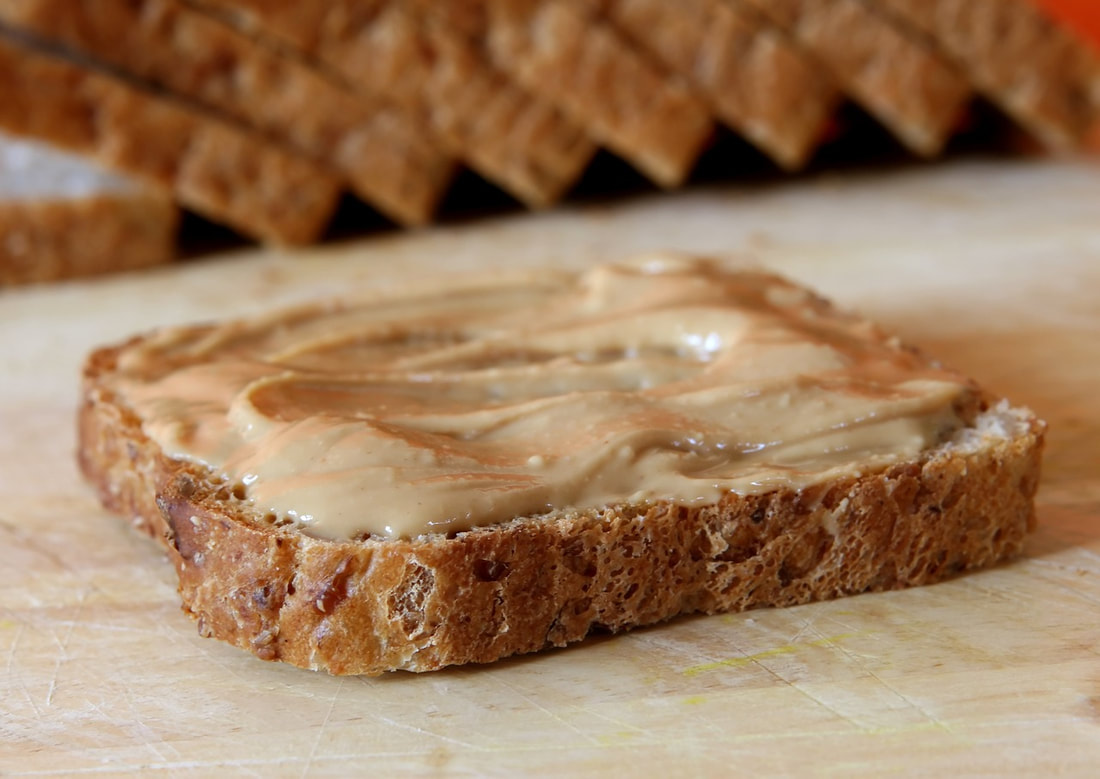|
7/27/2017 Think About It - Jif Peanut ButterIf you’re also a peanut butter person, then you understand how delicious and addictive this nutty spread can be. I truly adore peanut butter and would happily subsist on nothing else – in fact, my life was headed in that direction until my parents banned me from it a while back. This sounds aggressive, but it turns out that they weren’t being entirely irrational when they did this. Peanut butter has some massive caveats. To begin, peanut butter is a very calorically-dense food. This alone is not a reason to avoid it entirely, as high energy snacks can be immensely beneficial if used properly (try to find a marathon runner who doesn’t eat peanut butter). However, just two tablespoons of Jif Creamy Peanut Butter packs in 190 calories. That may not sound like a lot, but two tablespoons is a lot less than people think. If you’re prone to eating out of the jar, you definitely overshoot the serving size.
Given the fairly high calorie count per unit volume, it’s unsurprising that those two tablespoons contain 16 grams of fat. That’s 21% of the FDA’s daily recommended value in two spoonfuls of peanut butter. Many people, especially those who don’t eat meat or fish, use peanut butter as a major source of protein. This is not necessarily wrong, as those two tablespoons have 7 grams of protein (or 14% of the FDA recommended value). But if you’ve read my article about how misleading nutrition facts and daily recommended values can be, alarm bells might be ringing in your head. This is a lot of fat to ingest for a relatively low amount of protein – for me personally, this is 40% of my daily fat for just 5% of my daily protein. All of this info is important, but isn't necessarily a reason to avoid peanut butter like the plague. However, the presence of aflatoxins might be ominous enough. Aflatoxins are produced by the Aspergillus molds, and are considered harmful and carcinogenic to humans once they're digested. They're most often found in raw agricultural products, including corn, dried fruit, chillies, and many varieties of nuts, including peanuts. The FDA tests foods that may contain aflatoxins, but the stability and resilience of these compounds can allow them to evade strict contamination measures and show up in even the most heavily processed foods (i.e. peanut butter). At the end of the day, a Reese's cup (or three) isn't going to kill you, and neither is the PB&J or the occasional spoon-in-the-jar midnight snack. But this is simply a matter of probability – the more peanut butter you eat, the more likely you are to ingest harmful aflatoxins. Probably not worth the risk. Ways to Think About It:
Disclaimer: I am not a licensed nutritionist nor a registered dietician. The opinions expressed in this article are my own, and each individual is ultimately responsible for his/her dietary and nutrition practices. Please consult a physician before starting a new dietary program. Comments are closed.
|
categories: |

